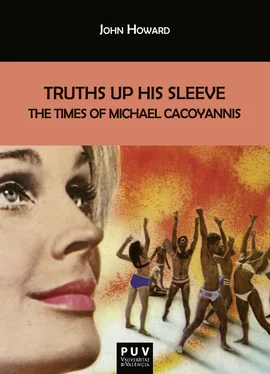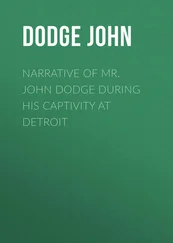However, in 1952, exhausted and depleted, Michael considered other options. He could ignore critics’ meanest remarks about his acting, but he could not deny their inescapable conclusion about his height. Claude Rains, after all, was the exception that proved the rule. Michael was simply too short for the vast majority of leading roles. Michael now gave thought to leaving London for good. Then the painful exhilarating anxiety of live television ended for all actors and spectators. In late 1958, “millions of viewers watched in horror as the young actor Gareth Jones collapsed and died during the live transmission of Armchair Theatre’s Underground.” As Donald Spoto concludes, “the change from live to filmed programmes [in the U.K.] occurred almost immediately.” 32
After the Holocaust
After liberation of the concentration camps, Nazi surrender, and VE Day, celebrating Allied victory in Europe in early May 1945, journalists had reported ecstatic street celebrations alongside articles generating existential horror over the Holocaust. The so-called Final Solution had doomed millions of European Jews to death, as many nations refused refugees from Nazi Germany, even returned them. In addition to the yellow star of David, concentration camp prisoners’ color-coded triangular badges confirmed that other groups had been targeted for persecution or elimination: Roma, communists, migrants, Jehovah’s Witnesses, homosexuals, anti-social or “asocial” persons, and race-mixers or “defilers,” with considerable overlap among them. As Nazi eugenics and “scientific racism” intersected with other forms of human differentiation and domination, Nazi policymakers multiplied the number of outcast groups. Repeat offenders suffered additional penalties as “habitual criminals.” Though humankind always had known genocide, the scale of the Holocaust was unprecedented. Its wickedness and depravity shocked human consciousness across the globe. How could survivors go on? Where would they go? For non-Jews classed among other outcast groups in Germany and beyond, how could ordinary life resume? 33
One month after VE Day, a young English soldier wrote in his diary, “Ah sex! How obvious it is that without a satisfactorily adjusted sex life, a full and happy life is impossible.” He added, “I feel an increasing need to come out into the open—I have no more to be ashamed of than anybody else.” However, he decided, this coming out into the open “of course is impossible.” Was he, he wondered, “irredeemably homosexual”? The very question suggested its answer. After all, did any men registering as zero on the zero-to-six hetero-to-homo Kinsey scale, released in 1948, ask themselves if they were “irredeemably” or exclusively homosexual? Did bisexuals registering as three or four? Resigned to secrecy for safety’s sake, the young man wondered, should his sexual “instincts … be repressed or allowed scope”? If self-aware 22-year-old enlistee Lindsay Anderson could weigh such questions, no doubt 24-year-old pacifist and atheist Michael Cacoyannis could too. Indeed, it is most likely that, after his youthful homosexual experimentation in Cyprus, Michael enjoyed the great range of sexual opportunities in wartime and postwar London. He eventually crossed paths with Anderson, and they became good friends. 34
With the meager allowance from his father supplemented by his BBC salary, Michael finally could afford to rent an apartment of his own. He chose the Marble Arch neighborhood. First, from the mid 1940s, he lived at Portsea Place, in modern Portsea Hall. Never shaking inherited bourgeois pretense, he referred to it as Connaught Square, a classy 1820s rectangle just steps away, with private key gardens closed to him. Then, from the 1950s, he rented across the street from the arch itself. He called this Park Lane, famed worldwide after the 1936 invention of board game Monopoly. Michael’s address for a time indeed was 140 Park Lane, but Londoners knew the building was situated at the “top end” geographically, not the top end socially. This large late-1910s block of flats at the road’s north terminus also fronted onto busy commercial Oxford Street. As with Portsea Hall, 140 Park Lane provided easy access to Hyde Park for strolls under the trees and other leisure activities by day or night. Michael selected this neighborhood and these flats for additional reasons. Each building had a “picture palace” built onto the rear: the art deco Royal Cinema and the larger Electric Pavilion, with almost 1200 seats. Thus, Michael could watch the latest film releases in the West End or in his own backyard. 35
Although Michael sometimes “had been hesitant or shy about his homosexuality, he pursued sexual gratification” now, like director George Cukor, “with the same fervor he applied to his career.” Marble Arch was nigh equidistant to two of the three Turkish baths well known for gay rendezvous. Walking northwest along Edgware Road, Michael could reach the Harrow Street Baths in less than 15 minutes. Walking southeast through Mayfair he’d arrive at the Savoy Baths on Jermyn Street in just over 20. For that matter, if Michael needed to let off steam from work, he could take a long lunch or afternoon tea break, walk out of his office in Bush House, and proceed 20 minutes directly up the street to the Imperial Baths in Russell Square. Back in his neighborhood at night, Michael knew how to avoid gay-bashers who sometimes prowled Hyde Park in packs. If he stayed close to Hyde Park Corner, at Park Lane’s south end, he could remain both in the dark and near the streetlights—that is, both anonymous and safe. 36
With a free hand at the BBC and some free time between shows, Michael’s period living alone in England proved liberating but all too brief. One sibling after another moved to London and moved into Portsea Hall. After meeting a British naval officer, younger sister Yannoulla announced they were getting married. Long attracted to wealth, Yannoulla had found an aristocrat of a sort, since Bill Wakefield’s father was the geographer and Boy Scout patron William Birkbeck Wakefield, appointed MBE, a non-hereditary title. As Yannoulla remembered, laughing, “it was a posh wedding” at the King’s Chapel of the Savoy in 1945, followed by a reception at the Savoy Hotel, on the Strand in London. Directing another stagey performance, “Michael gave me away” and “organized everything.” Yannoulla and Bill moved into a home southwest of London in Surrey. 37
In early 1946, for the first time in his life, Michael visited Greece. His trip to Athens was enchanting but paradoxical. Schooled in the classics, arriving “with the awe and humility of a pilgrim,” he went directly to the Acropolis, which was closed for ten days because “the guard was on strike.” Throughout the city, the faces of mothers “betray[ed] heavy and anxious hearts[,] their foreheads furrowed and their eyes burning with the search for food, lack of sleep, and tears.” As he realized, even after the end of Nazi occupation, deprivation, hunger, and anger had intensified in the war’s aftermath. Even so, evenings excited Michael, the “bright lights on the streets, the shop windows, and the places of amusement, [all] crowded and lively.” At the cafes, talk amongst bohemians energized him, as he eavesdropped then got acquainted with intellectuals, including former members of the resistance to occupation, many communist. As he learned, even pacifists celebrated Oxi Day each year, commemorating Greece’s refusal of Mussolini’s ultimatum: Oxi meaning No! Over coffee, wine, and ouzo, rancorous disagreements with “deep historical and racial causes” foreshadowed the Greek Civil War, which would break out later in the year. It pitted rightwing militarists backed by the U.K. and U.S. against communists supported by Greece’s neighbors Albania, Bulgaria, and Yugoslavia. 38
Читать дальше











